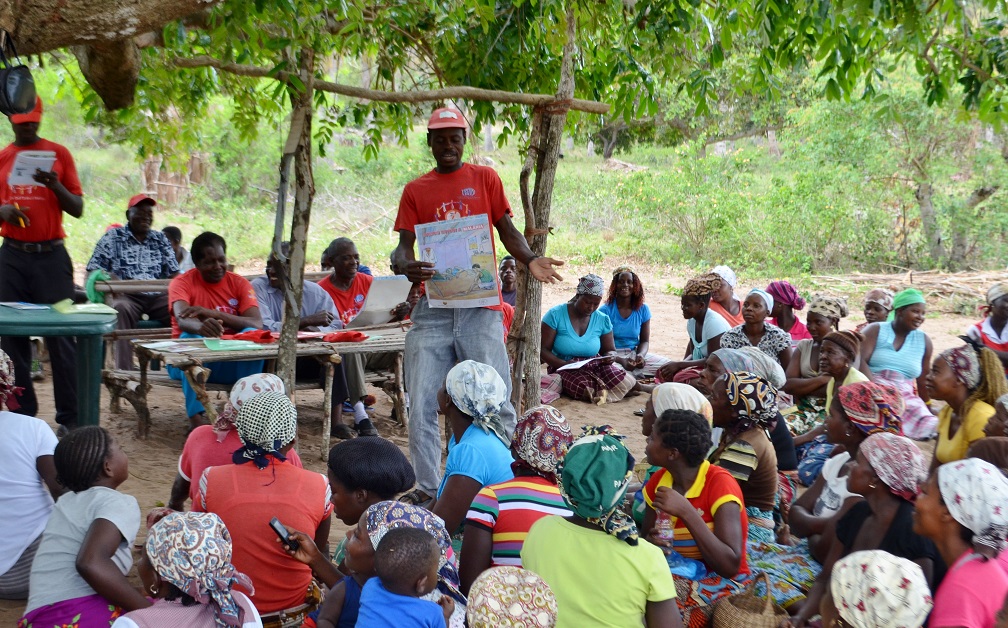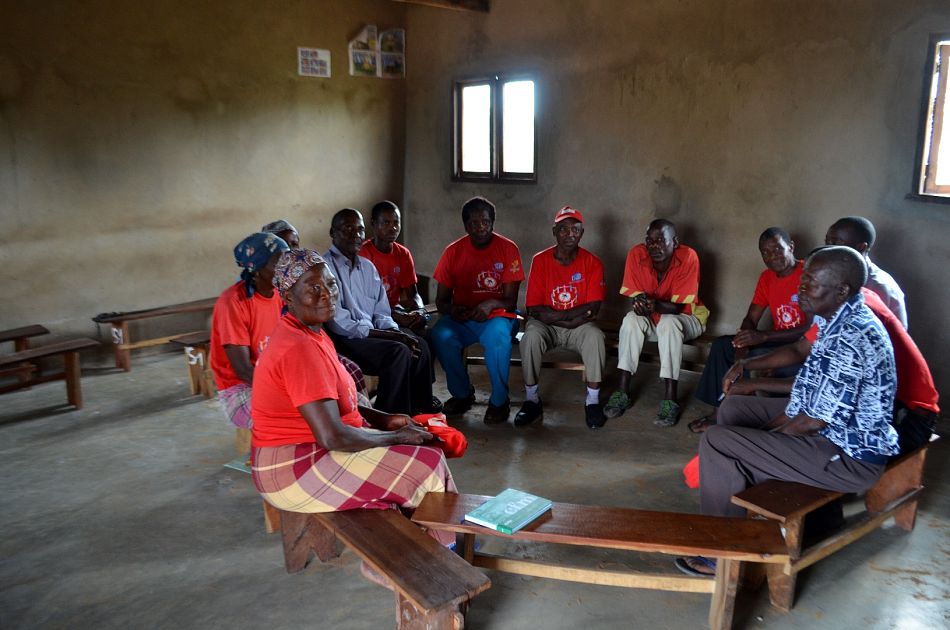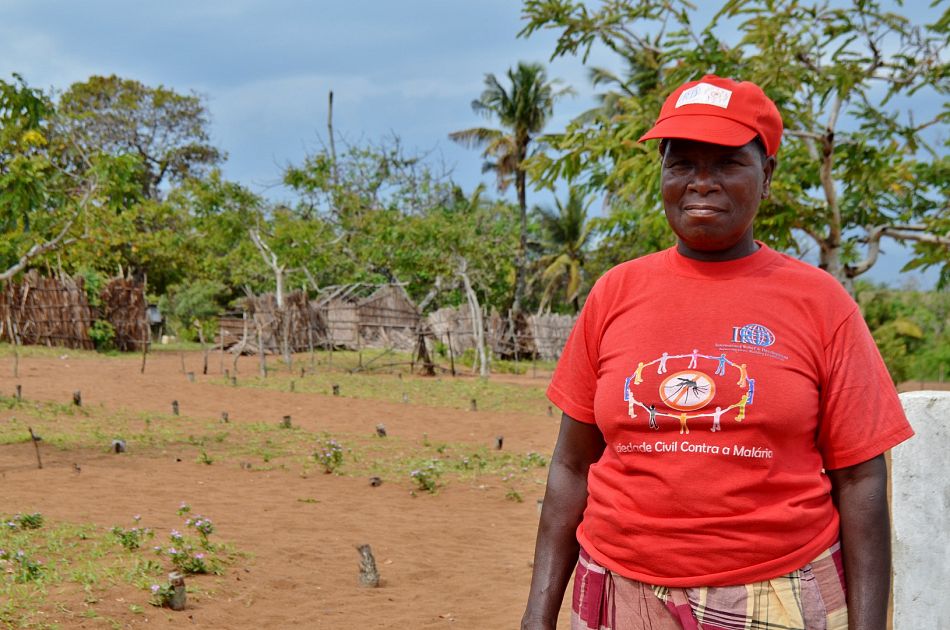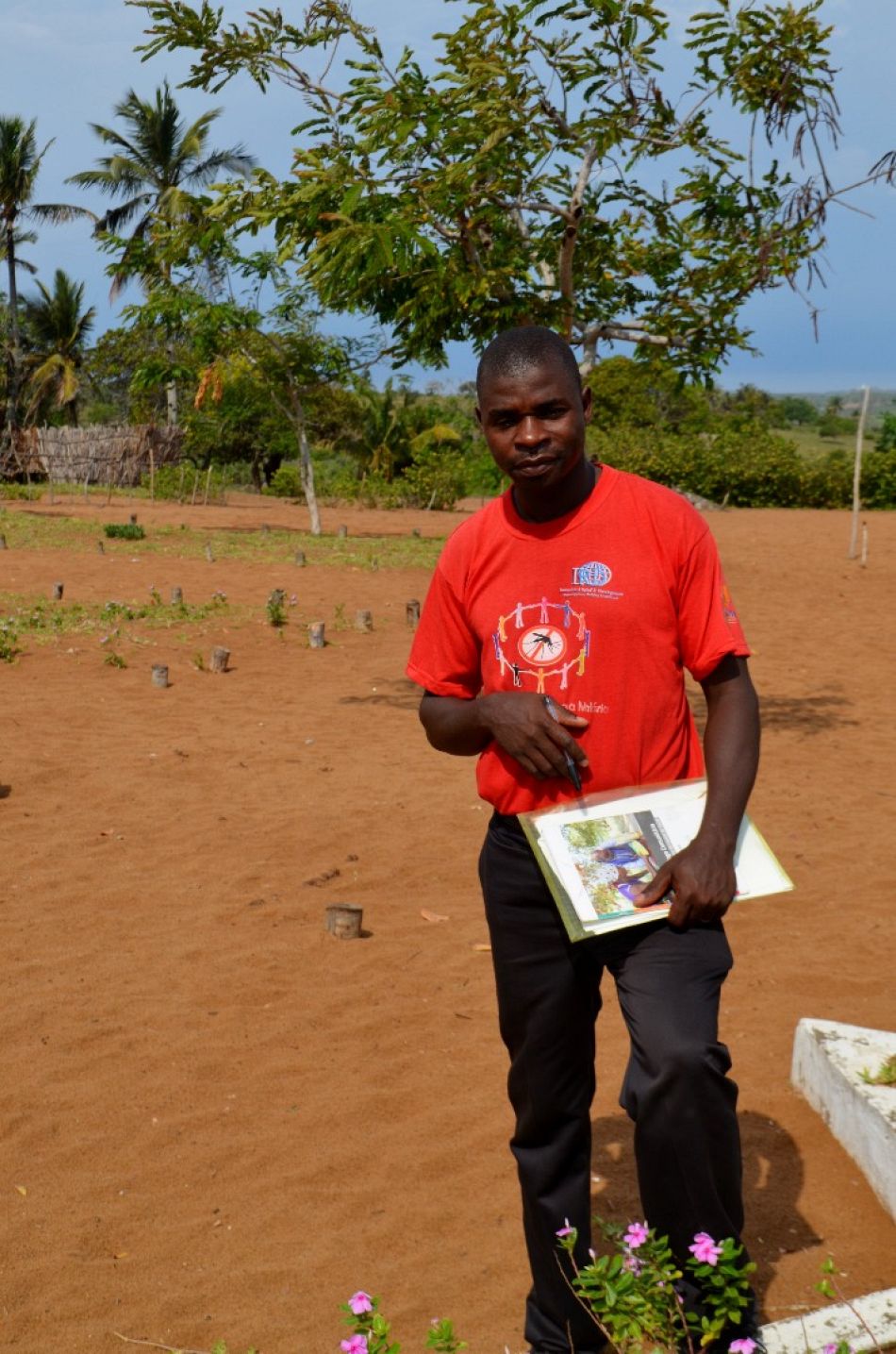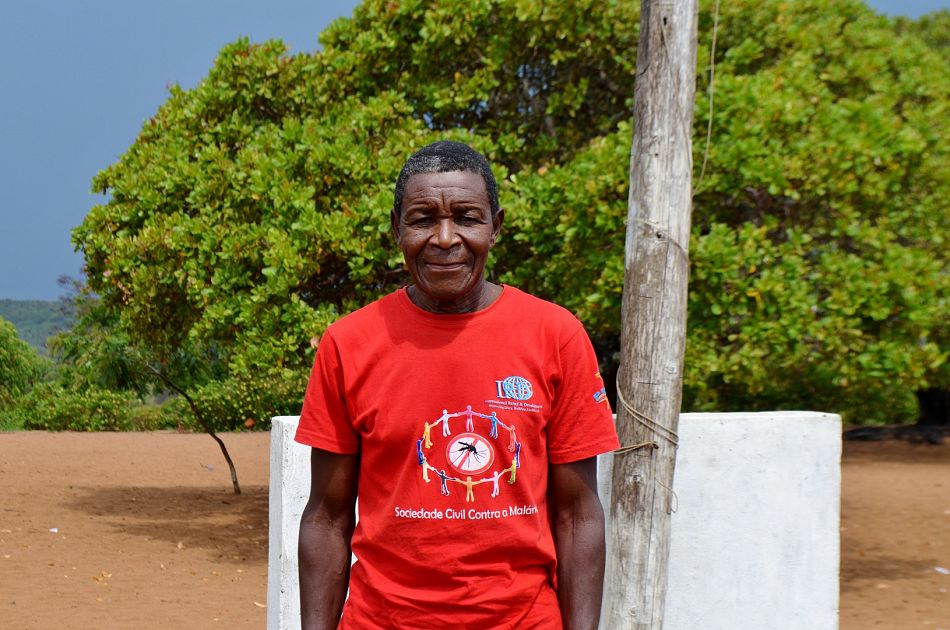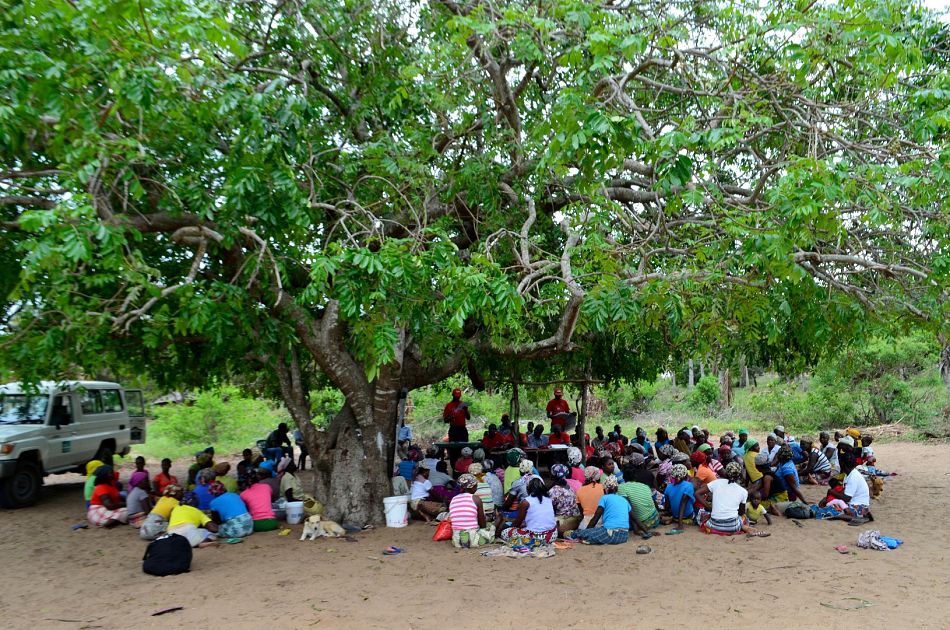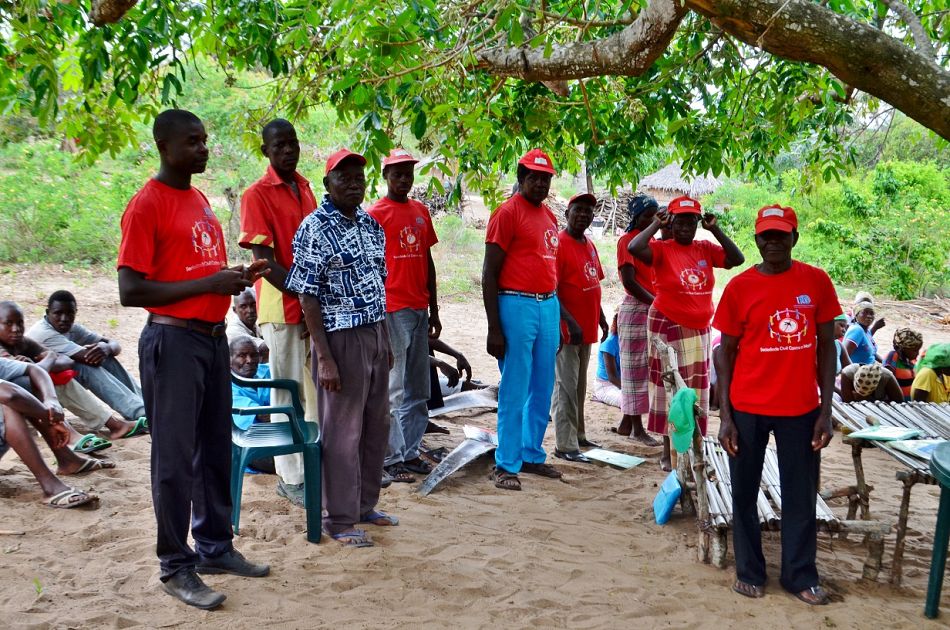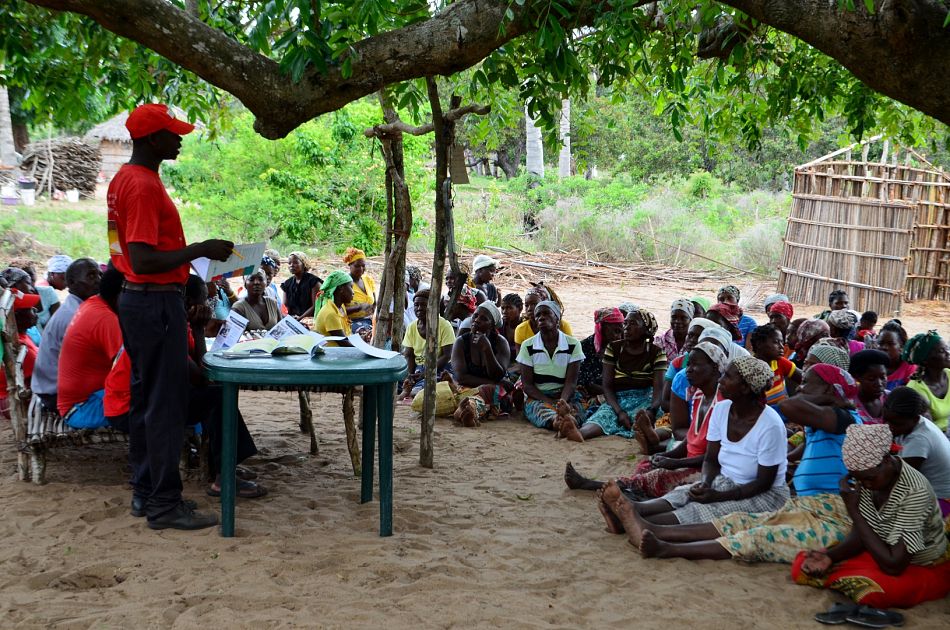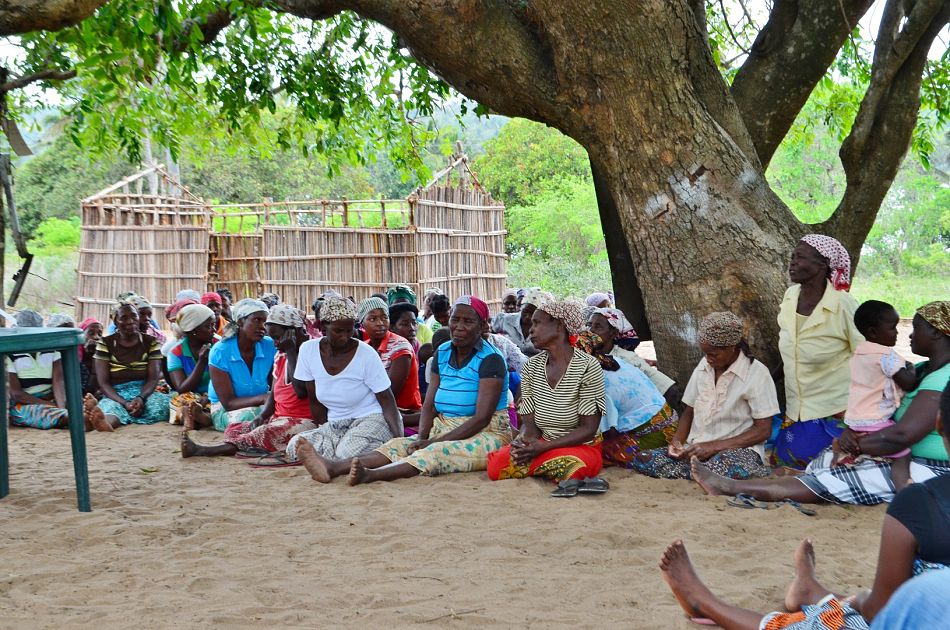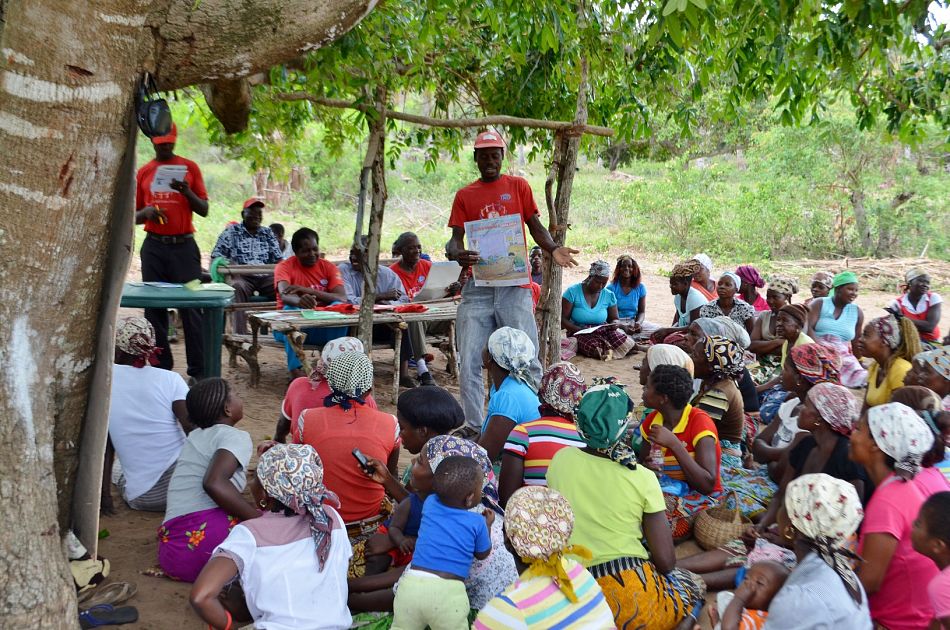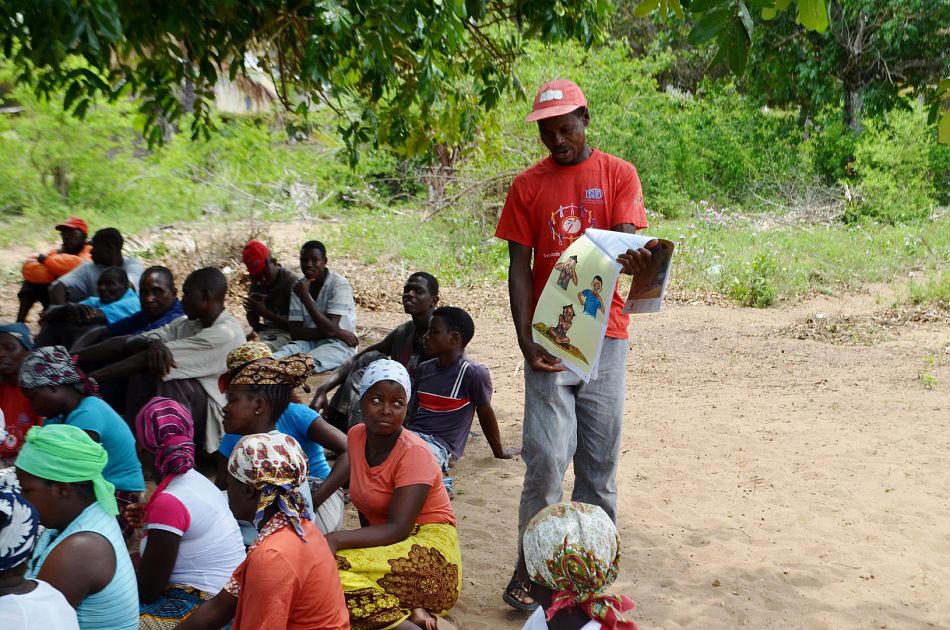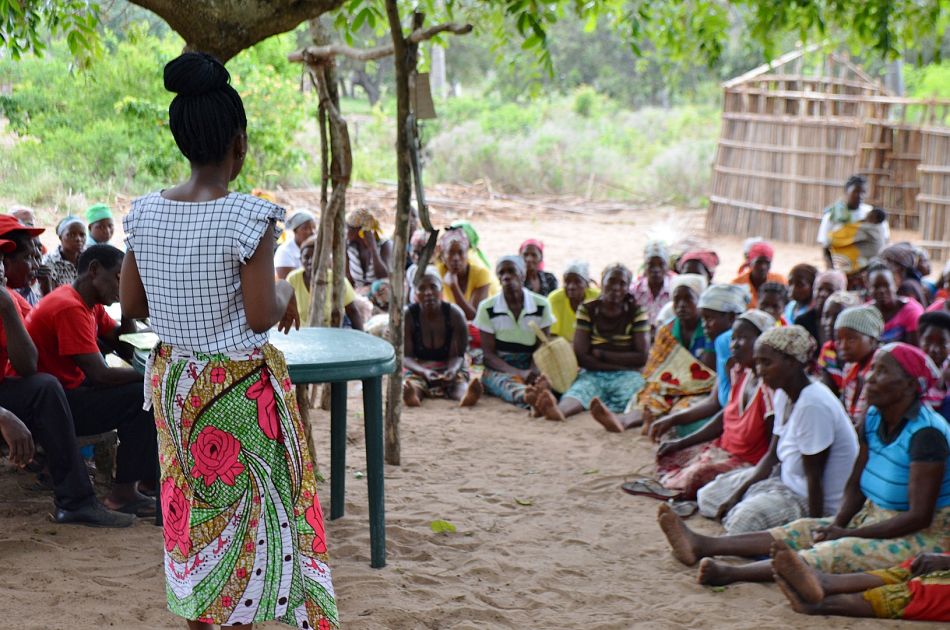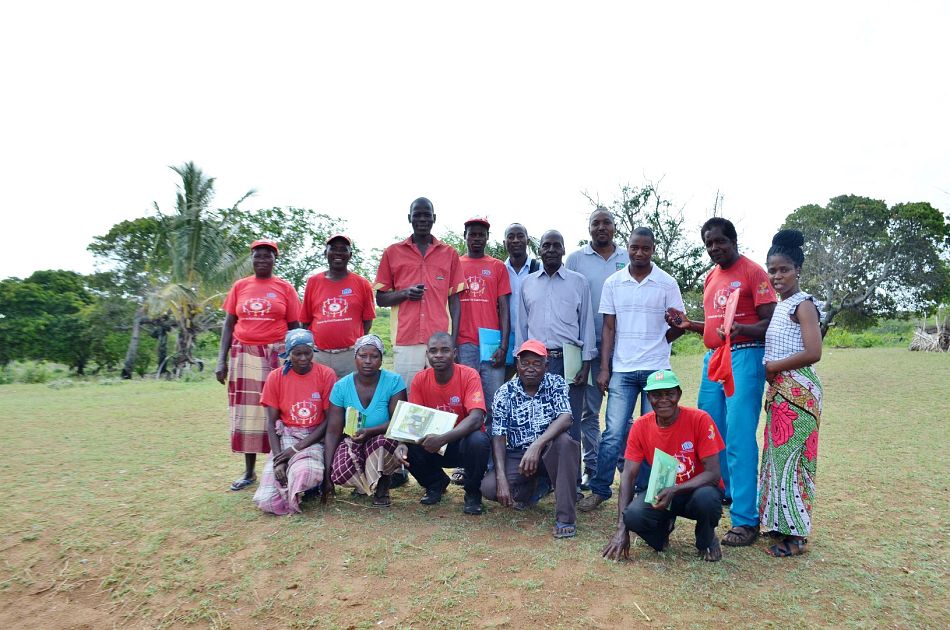Felismina lives in Inharrime, a region in southern Mozambique. She has been a member of her community’s health committee since 2013. “The committee meets twice a month: once with the whole community, and once with just the members of the committee. We talk a lot about hygiene – how to take care of latrines and keep your home clean so that people can stay healthy. We also discuss things like how to avoid getting malaria.”
The Ministry of Health has put community engagement at the forefront of its efforts to improve healthcare in remote areas for years. Given the high prevalence of malaria, pneumonia and other infectious diseases, they have encouraged the creation of these community health committees as a way to help spread awareness and offer a platform for discussion. Consisting of elected members, religious leaders and community health workers amongst others, these groups are promoted as an effective means of mobilising communities and getting them to talk about health problems and identify solutions.
“There are 15 regular members of our health committee,” says Adolfo Nhamize, who was elected president of the group. “I am responsible for leading our meetings. I make the reports and conduct dialogues with the community.”
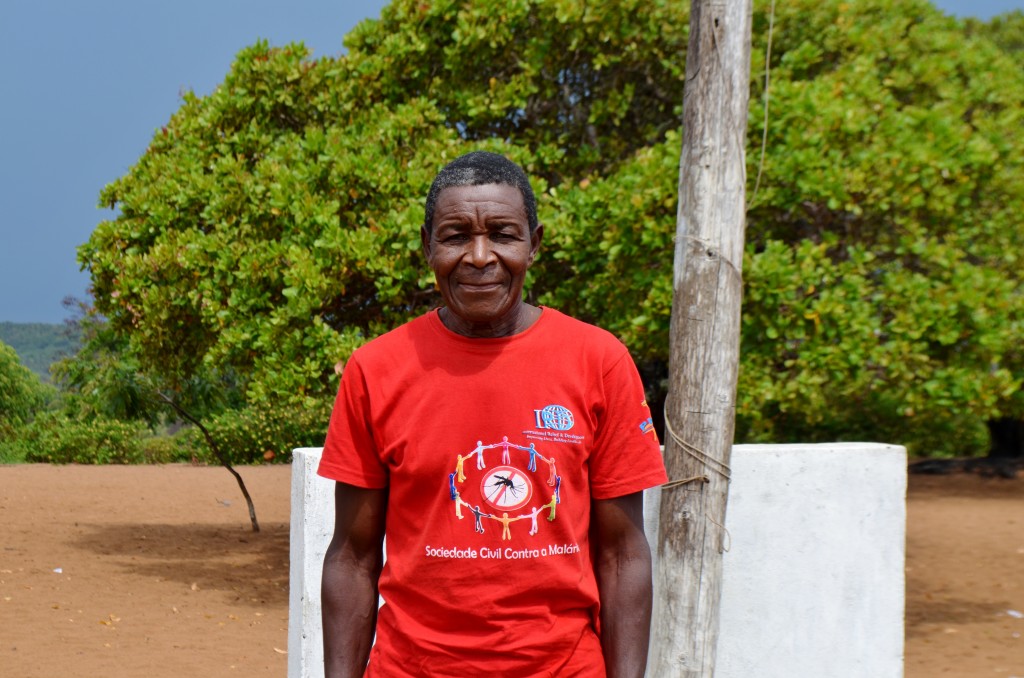 The committee’s secretary Daimanhane Mausene tells me what topics they cover at their meetings. “We discuss malaria, diarrhoea, pneumonia, HIV. We also educate women on pregnancy,” he says. “We sometimes go house to house and talk to people about the use of latrines, how to boil water so they don’t get sick, and how to take some medicines. Then we come back later and see if they are following our advice.”
The committee’s secretary Daimanhane Mausene tells me what topics they cover at their meetings. “We discuss malaria, diarrhoea, pneumonia, HIV. We also educate women on pregnancy,” he says. “We sometimes go house to house and talk to people about the use of latrines, how to boil water so they don’t get sick, and how to take some medicines. Then we come back later and see if they are following our advice.”
Resources for these committees are often scarce, and the lack of attention they receive means that members do not always receive proper training. Malaria Consortium’s Rapid Access Expansion (RAcE) project began working with the committees in 2013 to address some of these obstacles and to apply participatory learning methods within communities. Our team worked with the committees to introduce the community dialogue approach in order to get communities talking. The dialogues focus on increasing demand for (and use of) health services available within the community as well as provide a platform for discussing health problems and identifying solutions. As part of the approach, community health workers and community leaders receive a two-day training to organise and lead the dialogues, using a repeatable 10-step process and focus on the three major childhood illnesses.
“We talk about all sorts of things during the dialogues,” says Felismina. “Sometimes we discuss mosquito nets, because some people don’t use them or don’t have them. Other times, people talk about diarrhoea because of the dirty water.”
“People used to complain a lot about getting malaria,” says Fernando Machapene, a religious leader and member of the committee. “So we told them to go to the hospital and take medicine.” Residents also talk about practical problems and put forward recommendations. “Some people said that we only had one community health workers serving five communities and that we needed more – maybe two or three.”
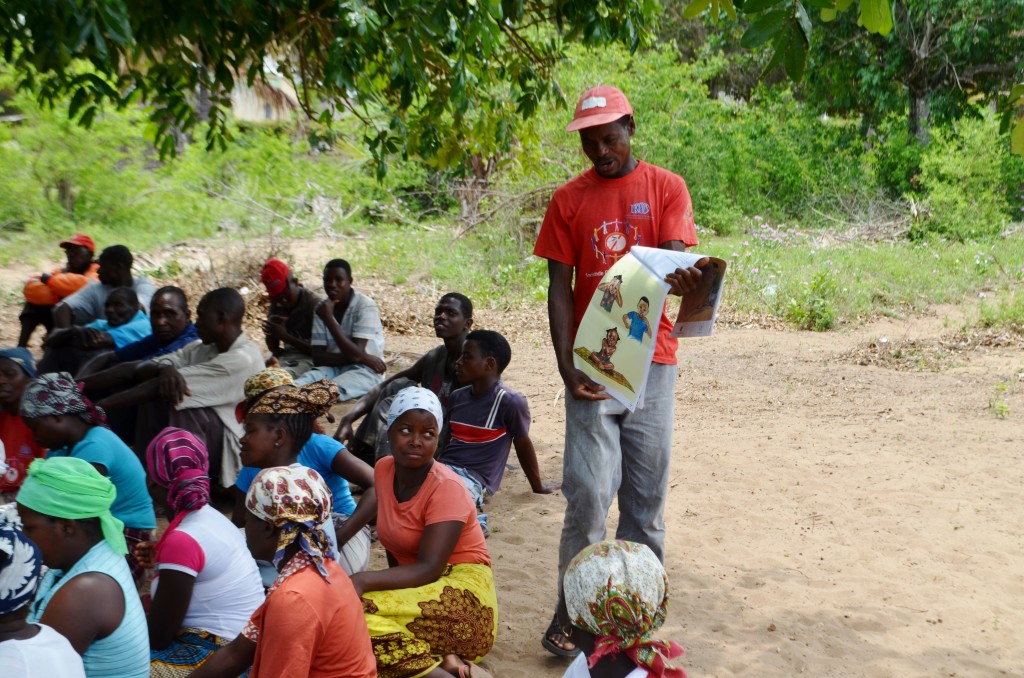 When I arrived in Inharrime earlier that day, a community dialogue was taking place. The topic was malaria. Gathered under a tree, the health committee fielded questions, gave advice and walked around the group showing illustrations and other educational materials. These included pictures that showed how to effectively tuck in a mosquito net as well as other methods of protection. Unfortunately, the session was interrupted after about 30 minutes by a sudden and unexpected downpour. Some people ran home, while others huddled together under the tree in an attempt to stay dry. It was clear, however, that the dialogue could not continue.
When I arrived in Inharrime earlier that day, a community dialogue was taking place. The topic was malaria. Gathered under a tree, the health committee fielded questions, gave advice and walked around the group showing illustrations and other educational materials. These included pictures that showed how to effectively tuck in a mosquito net as well as other methods of protection. Unfortunately, the session was interrupted after about 30 minutes by a sudden and unexpected downpour. Some people ran home, while others huddled together under the tree in an attempt to stay dry. It was clear, however, that the dialogue could not continue.
Adolfo, a provincial coordinator of community health workers (called Agentes Polivalentes Elementares, or APEs in Portuguese) tells me that weather is not the only challenge that the health committee faces. “It is sometimes difficult to get people to come to the meetings,” he said. “People might not always show up. They will say that they have plans, or that they have to go to the field to work. One way we try to remind them is by having teachers tell their students, who then tell their parents when they get home.”
Despite these challenges, the community dialogue initiative has proved a good way to improve the community knowledge of some diseases and wrong behaviours. In his community, Daimanhane has also noticed some changes in behaviours. “They try to follow the advice we give them,” he says.
Check out the photo story below to learn more:
Ilya Jones is the Communications Officer at Malaria Consortium
